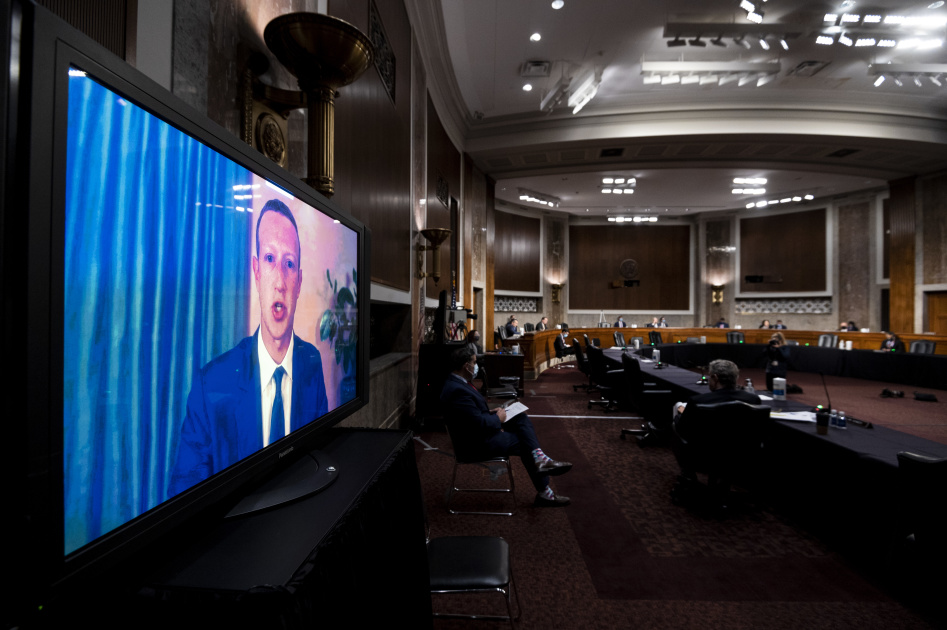Democrats, on the other hand, were at times more eager to press the CEOs on misinformation. Cory Booker pointed out that several of Trump’s posts were among the most-engaged with content, and asked Zuckerberg if Facebook would take steps to prevent algorithmic amplification of false posts from Trump. Zuckerberg pointed to other steps the company has taken like blocking political groups from the site’s recommendations. Senator Richard Blumenthal pushed the companies on how they plan to handle the growing problem of Spanish-language disinformation, and why Facebook declined to ban Steve Bannon after he suggested government officials should be beheaded.
But the more than four-hour long hearing also veered off course at times. Committee Chairman Lindsey Graham kicked things off by assailing the addictive qualities of social media, citing Snapchat’s streaks feature as particularly “dangerous.” (Snap was not participating in the hearing.) And Senator Amy Klobuchar used much of her time to discuss antitrust concerns, forcing Zuckerberg to defend Facebook’s 2012 Instagram acquisition.
There were moments that resembled a real discussion, though. Both Zuckerberg and Dorsey detailed how they believe Section 230 could be changed for the better. Dorsey repeatedly talked about increasing transparency around ranking algorithms, and giving users a choice about how their feeds are filtered, at one point referring to a potential “marketplace” of algorithms from outside developers. Zuckerberg, on the other hand, pointed to Facebook’s transparency reports. He suggested there should be a standardized framework for other social media companies to release similar information, so users might have an “apples-to-apples” method of understanding how effective companies’ policies are. (Conveniently, Facebook has its next quarterly transparency report due out later this week.)
One of the biggest moments came when the CEOs were pressed on how they would handle Trump’s accounts once he leaves office. Dorsey confirmed the company would no longer apply the special protections it gives world leaders. Zuckerberg didn’t answer directly: he said Facebook would continue to give Trump “the same treatment as anyone else” when it comes to hate speech and violence. A Facebook spokesperson, however, confirmed the company could fact-check the president after he leaves office as former politicians are eligible for fact-checking.

